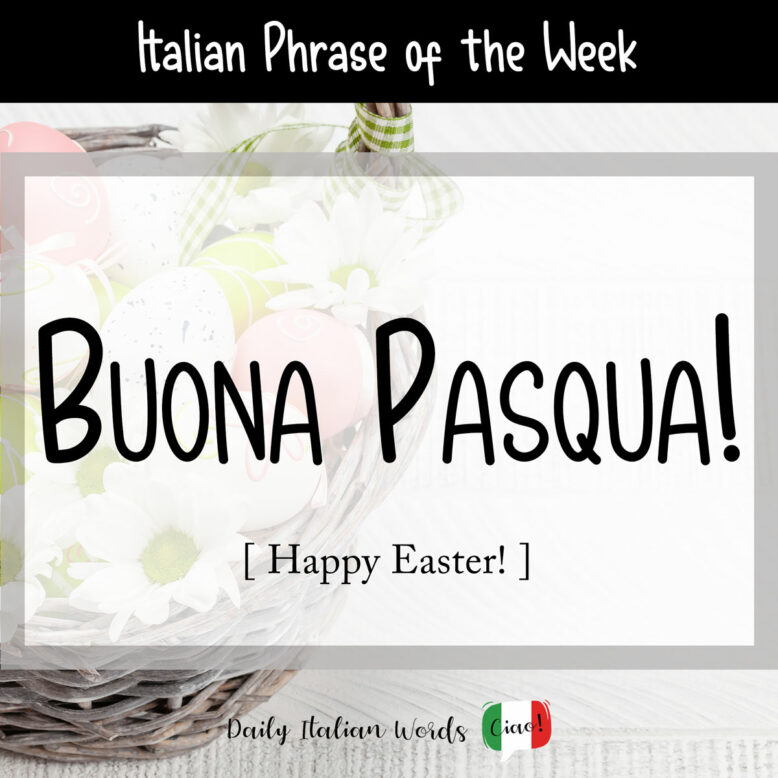Today’s word of the day is part of our Italian Easter Word series. Each day during the week leading up to Easter, we’ll post a word that is related to this special time of year. Enjoy! 🐰
In English, we greet each other at Easter time by saying Happy Easter! but what about Italians?
The Italian Easter greeting you will hear most often is Buona Pasqua! which literally translates as Good Easter!
Buona Pasqua a tutti!
Happy Easter everyone!

Learn with our video
Pasqua is the Italian word for Easter. It comes from the Latin pascha (meaning “Passover”). This term can be traced back to the Ancient Greek πάσχα (páskha, “Passover”), and ultimately comes from the Hebrew פֶּסַח (pésakh).
Did you know that…
Pasqua is also an Italian surname. It was given to someone who was born this day.
In order to specify who is on the receiving end of your greeting, you can use the following indirect object pronouns:
- Buona Pasqua a te! (Happy Easter to you! – informal ‘you’)
- Buona Pasqua a Lei! (Happy Easter to you! – formal ‘you’)
- Buona Pasqua a voi! (Happy Easter to you! – plural ‘you’)

A longer alternative is Auguri di Buona Pasqua! which literally translates as Good Easter Wishes! However in the spoken language people usually shorten this to just Auguri! or Tanti Auguri!
Auguri di Buona Pasqua, Gianni! – Grazie, auguri anche a te!
Happy Easter, Gianni! – Thanks, the same to you!
The verb augurare, which means to wish, is used in the phrase I wish you a Happy Easter! Whether you should use ti / Le / vi depends on whether you are addressing someone informally (a friend or family member), formally (your boss or someone you don’t know well), or a group of people.
- Ti auguro una buona Pasqua! (singular you, informal)
- Le auguro una buona Pasqua! (singular you, formal)
- Vi auguro una buona Pasqua! (plural you)
If Easter occurs early in the year, it is called Pasqua bassa (lit: Low Easter) whereas a late Easter is called Pasqua alta (lit: High Easter).
The most important religious dates preceding and following Easter Sunday (La domenica di Pasqua) are as follows:
- Domenica delle Palme = Palm Sunday
- Venerdì Santo = Good Friday
- Sabato Santo = Easter Saturday
- Pasquetta = Easter Monday
- Pentecoste = Pentecost

Heather Broster is a graduate with honours in linguistics from the University of Western Ontario. She is an aspiring polyglot, proficient in English and Italian, as well as Japanese, Welsh, and French to varying degrees of fluency. Originally from Toronto, Heather has resided in various countries, notably Italy for a period of six years. Her primary focus lies in the fields of language acquisition, education, and bilingual instruction.


